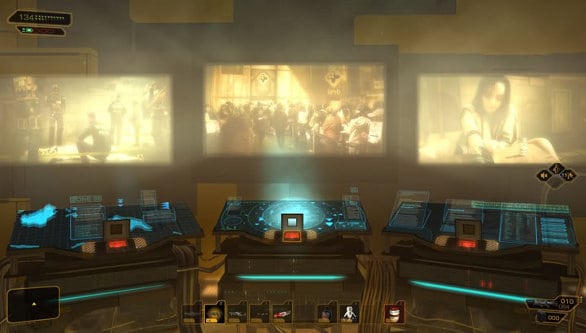Last week, I examined the concept of branching narrative in the context of gaming. Working from an interview with TellTale Games and using The Walking Dead as an example, I came to the conclusion that, ultimately, the choices themselves don’t matter. What’s truly important is that you make your players invest themselves in the dilemmas you’ve presented them; make them think and feel and agonize over which choice is the right one. If you can’t do this, it doesn’t matter how many different paths your story gives the players – they aren’t going to care.
Emotional investment is only part of the equation, however. Once you’ve got the players caring about their choices, you have to show them that those choices actually made a difference. Perhaps even more vital to any good narrative is player agency: essentially, allowing the player’s actions to have a real, noticeable impact on the world around them – and demonstrating to them that impact.

Essentially, you need to show them what they’ve done to shape their environment. You need to present them with consequences.
If you fail to accomplish this, you’d best ready yourself for the backlash. Players who were emotionally invested in the plot will feel as though their investment was cheapened, and will more than likely disconnect from your title – and any future titles you create. It’s fairly easy to see why, truth be told: after creating a narrative in which they’re truly engrossed, characters they actually care about, and a series of choices that actually make them think…you run roughshod over everything they’ve accomplished. You inform them – in no uncertain terms – that their choices ultimately don’t matter, and that all that they’ve invested was a waste of energy.
Not to beat a dead horse, but the ending of Mass Effect 3 was a prime example. Rather than enabling the player to see the universe they shaped, rather than showing them what really transpired as a result of their decision, Bioware treated the players to a woefully-short, incredibly shoddy cutscene which was virtually the same no matter what choice they made. Several years of gameplay, several years spent with a cast of beloved characters down into about thirty seconds. The players were given a choice, yes; but it was ultimately a hollow one, with none of the emotional weight and care that they’d come to expect.

The fury of Mass Effect fans was absolutely legendary, and rose to such a fever pitch that Bioware, in an effort to placate fans, released an extended ending. The issue was that players didn’t feel that the decisions they’d made were given their due – they didn’t get a chance to see the weight of their choices, the impact they’d had upon the fate and future of a universe they’d come to know and love. They felt that all the attachment they’d developed to the series had been entirely disregarded – which, in a sense, was completely true.
So how does one avoid such a pitfall as this? How does one keep a coherent narrative while at the same time ensuring that players can exert a very real influence on the world around them?
Now, as we’ve already established, true choice is virtually impossible in the context of a video game narrative. Barring some incredible, world-changing technological advancement, there will always need to be guardrails: there will always need to be a set path hiding somewhere in a story. The trick lies in providing players with the illusion of choice.

You need to make players feel as though they are making real choices, with real consequences. It doesn’t actually have to lie in allowing the player to decide how a story ends. The Walking Dead game essentially had the same basic ending no matter what the player did – yet it stands as a shining example of player agency in gaming. Why?
Because players could actively shape the plot in small ways, even if they couldn’t decide exactly where it was going.
Setting something like this up is easier said than done, and the illusion of choice is a fragile one; easily broken along with a player’s suspension of disbelief. Depending on how you’ve established your players are capable of shaping your world, a disconnect can occur in one of three ways:
- If the players can’t make a choice which would seem the obvious one for any sane,stable human being.
- If events will clearly proceed in the same fashion no matter what the player does, even though they’re led to expect more – their choices literally have as much impact on the plot as whether or not their character is wearing a hat.
- If they’re given choices, but there’s either no demonstrable weight to the choices or they never get to see them satisfactorily resolved. The choices literally just exist to advance the story, without any real consequences one way or the other.

Essentially, the illusion is broken when a choice is handled in a ham-handed fashion which makes it clear that any agency the players have been given over your world – and your story – is a farce. The players disconnect when the choices they’re given don’t mesh with the choices they’ve expected. If you wish to avoid this, there’s really only one way to do it: a combination of good writing and foresight.
In any case, I’ve droned on enough for now. Next week, we’re going to delve into creative control in the game development scene. Until then, have a good one.

